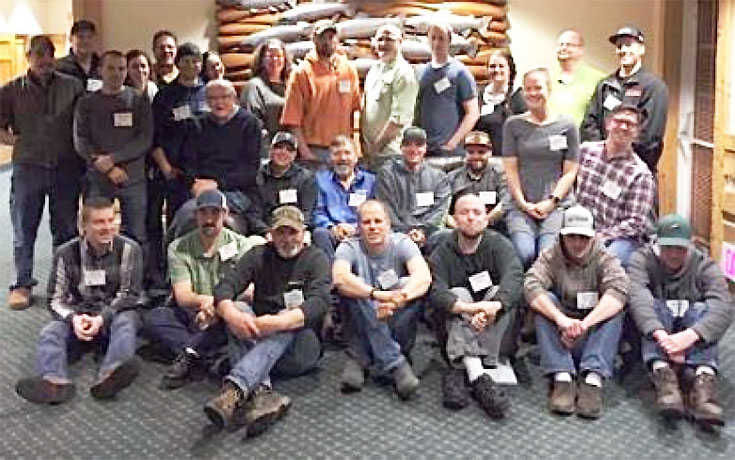Sarcasm’s Severe Consequences
Ray, Foreman for an electrical contractor in Battle Ground, WA, told Session 2B of Turbo’s Leadership Development Lab (LDL):

“Earlier in my career, I worked as a Grocery Store Manager. At the first store I worked at in my new position as Manager, Joel was my Pricing Manager. Joel was everything I could want in a Pricing Manager: efficient, prompt and organized. A truly wonderful addition to my new team. Within the first month, I had built a relationship with Joel and we worked together very well. I had been scheduled to train a new Overnight Checker at around 4am. The Checker arrived and we began training. Joel came up to ask me a question and I introduced him ‘This is by far my worst employee.’ He asked his question and went about his work and I went back to training our new Overnight Checker.
Over the next couple weeks, I noticed a change in attitude with Joel towards me. He avoided me, had a sour faced expression and there were no casual, warm comments. When I confronted him on the issue, he said sourly ‘Why don’t you ask one of your ‘good’ employees?’ and stormed off. After that, no matter how I tried, I could not communicate with Joel, so I staged a meeting with my boss to clear the air. I tried to explain that I was being sarcastic and truly thought he was one of my best. Joel didn’t get over my joke and quit my team shortly after. My sarcasm had cost me and my team a very valuable asset.
“The lesson I learned from this experience is that my sarcasm can have severe consequences and that there are enough challenges in communicating, building my relationships and creating a team without resorting to the risky practice of using sarcasm.
“The action I call you to take is to please, check what you say. Don’t use sarcasm with peers or subordinates. Be direct, say what you mean and mean what you say. Don’t ask people to try to interpret what you mean. It can cost you dearly.

Mean what you say.
“The benefit you will gain is keeping a good or potentially good employee on your team, working for you, not against you.”
Often we use sarcasm to avoid being direct. Frankly, it is a lazy way to communicate. You are trying to influence behavior, provide a critique, without exercising the courage required to be direct. Stop talking about the things that can go unsaid and exercise the courage to say with clear, direct language the things that need to be said. Saying “don’t work too hard” to a worker who is dawdling isn’t nearly as helpful as addressing the behavior directly, honestly, and with concern for the success of the worker. Remember, your coaching and corrective feedback must always be aimed at behaviors, not attitudes. Just keep your opinions to yourself.
Plan now for Turbo’s Fall Leadership Development Labs Portland, OR and Vancouver, WA

Give Larry a call at 503-691-2867 to schedule a FREE 50-minute on-site workshop
Putting the Super in Superintendent is a complimentary 50-minute on-site workshop. This program brings into sharp focus the most important qualities and behaviors of the “Super Superintendent” who ensures you are the builder of choice and consistently beat the bid.
Experience how other teams like yours have benefited and are already realizing measurable results with this workshop.
This 50 minute on-site workshop features all of the “- ations” that are characteristic of Turbo Leadership Systems® training:
- engaged participation
- pertinent information
- results in inspiration
- personal motivation
Call: 503-691-2867 or email your request to: admin@turbols.com

 Larry W. Dennis, Sr. President,
Turbo Leadership Systems©
Larry W. Dennis, Sr. President,
Turbo Leadership Systems©
